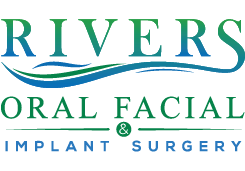Obstructive sleep apnea (OSA) disrupts breathing that occurs during sleep and is usually caused by an obstruction in the airway. OSA causes excessive sleepiness, snoring, and can also affect oxygenation of blood which may become life-threatening.
As we fall asleep and our muscles relax, and for those with OSA, air is not able to be blown out through collapsed or blocked tissue, essentially causing a lack of airflow, or apnea. This temporary “suffocation” causes our brain to make us go to a lighter level of sleep, or completely wake up, to make sure that airflow restarts. This prevents a normal sleep cycle and may cause fatigue, irregular heartbeats, pulmonary issues, elevated blood pressure, headaches, and more.
The following physical characteristics may cause sleep apnea:
• Nasal passages: Deviated septum, enlarged inferior turbinates, or nasal polyps
• Throat: Enlarged tonsils, prolonged soft palate and uvula, or bulky tongue
• Obesity
If non-surgical treatments, including CPAP (continuous positive airway therapy) and oral appliances do not work, an exam of the mouth and throat to identify the obstruction will determine if the patient is a candidate for sleep apnea surgery. Frequently, we can perform in-office, minimally invasive procedures within the nose and throat, which brings about long-term relief without the cost, pain, and down-time of more serious surgeries done in a traditional operating room.

